Durham HPC/AI Days 2024
Durham HPC/AI Days 2024
7 May – 10 May 2024
Durham University, Department of Computer Science, Durham, UK
MSCS 0001
Due to the limited number of places, we will close registration on Friday, 19 April 2024, high noon.
The call for presentations is now closed.

Following a successful 2023 event, we once again plan to host HPC Days in Durham in the week before ISC 2024 with friends and colleagues from all over the UK and from abroad. Registration is open and free of charge for all researchers. While we will stream the talks, the core event will run face-to-face in Durham. Our overarching themes this year are
Challenges for the compute centre of the future: Finding talent, compute in green, serve both communities
Compute centres and HPC research groups in academia face multifaceted challenges. Some key challenges today are the permanent lack of talent, the fact that many codes suffer from a lack of scalability and efficiency – notably the fact that supercomputers consume a lot of energy becomes increasingly challenging for many institution, i.e. there is a strong push towards green or even Net-Zero computing – and the permanent tension between the ML/AI community and the traditional simulation “customers”. The talks at the HPC Days will look at these challenges from different angles, share experience, and discuss potential approaches and solutions.
- Programme
- Call for presentations (closed)
- Registration (closed)
- Travel
- Programme committee
Programme overview
If the programme doesn’t display properly (on your smartphone, e.g.), please scroll down to the detailed agenda. On mobile phones, we recommend to switch to portrait mode.
Supporters
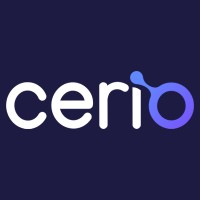 |  |  | |
 |  |  |
 |
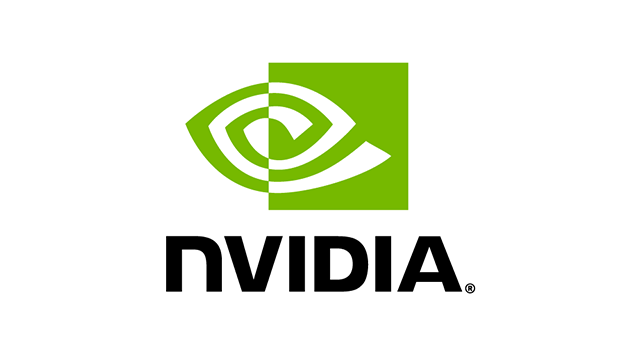 |
 |
 |
Detailed Agenda
| Lecture Theatre Computer Science MSCS0001 | Lecture Theatre Rowan House RH0007 | |
| Tuesday | ||
| 9:00-12:00 |
Cerebras Systems is a team of pioneering computer architects, computer scientists, deep learning researchers, and engineers of all types. We have come together to accelerate generative AI by building from the ground up a new class of AI supercomputer. Our flagship product, the CS-3 system, is powered by the world’s largest and fastest AI processor, our Wafer-Scale Engine-3. CS-3s are quickly and easily clustered together to make the largest AI supercomputers in the world, and make placing models on the supercomputers dead simple by avoiding the complexity of distributed computing. Leading corporations, research institutions, and governments use Cerebras solutions for the development of pathbreaking proprietary models, and to train open-source models with millions of downloads. Cerebras solutions are available through the Cerebras Cloud and on premise.
Additionally, Cerebras provides academics and researchers tools for low-level dataflow programming of the Wafer-Scale Engine, known as the Cerebras SDK, to accelerate high performance computing and research. Researchers at TotalEnergies, KAUST, ANL, PSC, and EPCC have used the Cerebras SDK to develop applications in areas such as seismic processing and Monte Carlo particle transport, achieving transformative performance due to the WSE’s high memory bandwidth and ultra-low latency fabric. In 2023, Cerebras and KAUST were recognized as a Gordon Bell Prize finalist for their work on seismic imaging algorithms with the Cerebras SDK.
|
 Filippo Spiga (NVIDIA):
Filippo Spiga (NVIDIA): Grace Hopper tutorial Participants will have the opportunity to access Durham’s N8 Grace Hopper test nodes throughout the tutorial. |
| 12:00-13:00 |
 Lunch
Lunch | |
| 13:00-15:00 |
Algorithms and applications
|
Lustre User Group meeting
The UK Lustre User Group brings together the UK Lustre community to share experiences of using Lustre in large-scale HPC and AI systems, as well as to hear the latest Lustre roadmap and community updates from Whamcloud and DDN field engineering teams.
|
| 15:00-16:00 |
Tobias Weinzierl and Nick Brown: Opening Remarks
Official opening of the HPC/AI Days with welcome messages from
|
|
| 16:00-16:30 |
 Coffee
Coffee | |
| 16:30-18:30 |
AI@HPC
|
Lustre Tutorials by DDN
New to Lustre? Interested to learn more about tools and best practice? Come along to our Lustre Tutorials, provided by DDN and Whamcloud, both for those who are new to Lustre, and for those looking to learn more about Lustre monitoring and performance, with Rich Mansfield and Vic Cornell of DDN.
|
| 18:15-21:00 |
 ExCALIBUR H&ES ECP Exchange and HPC Networking with DDN
ExCALIBUR H&ES ECP Exchange and HPC Networking with DDN
The evening will host a networking hang-out sponsored by DDN. Parallel to the event, the ExCALIBUR programme will run a set of light-touch hang-outs:
The ExCALIBUR-ECP Hardware & Enabling Software Knowledge Exchange Programme provides financial support for exchange visits of personnel who have been involved in UKRI projects, and those from the USA . The programme has a particular focus on technical Knowledge Transfer aspects and the Hardware & Enabling Software (H&ES) pre-exascale testbed projects funded under the ExCALIBUR initiative. More information is available at https://excalibur.ac.uk/themes/excalibur-ecp-exchange-programme.
One of the goals of the ExCALIBUR-ECP H&ES Exchange Programme is to identify opportunities for UK-US collaborative activities which will form the basis of a longer term proposal for an engagement programme. There will be a series of scoping workshops during 2024 covering areas of exascale such as already optimised numerical and IO libraries and applications, MPI and other parallel enabling tools including new compilers, system monitoring tools; parallel profiler and debugger applications.
The purpose of this session is to identify potential areas of interest to focus on during the first scoping workshop and to gather feedback and ideas from the community on how to maximise the impact of this new engagement programme.
|
|
| Wednesday | ||
| 9:00-10:00 |
Hatem Ltaief The Energy Diet: Trimming Excess in Data Movement for Scientific Applications
Did you know that estimating spatial models is one of the main computational challenges in large geospatial data analysis? Traditionally, geospatial data is processed in FP64. The future of simulations is all about exploiting hardware features driven by the AI market for low-precision computations. Modern NVIDIA GPUs lead the charge with huge gains from low-precision computations that directly translate into energy savings. We harness their low-precision computing capabilities to introduce a mixed-precision geospatial modeling approach. Our adaptive precision conversion strategy has turbocharged data modeling, achieving up to a 3x speedup against the full FP64 version while meeting the precision requirements of the application. Our approach is a game-changer for geospatial statisticians, bringing speed, energy efficiency, and precision to the forefront of computational statistics for environmental applications. We further extend these key concepts and demonstrate their impacts on a broad class of scientific applications, including computational biology for genome-wide association studies, computational astronomy for ground-based telescopes, and seismic imaging for CO2 sequestration.
(short bio)
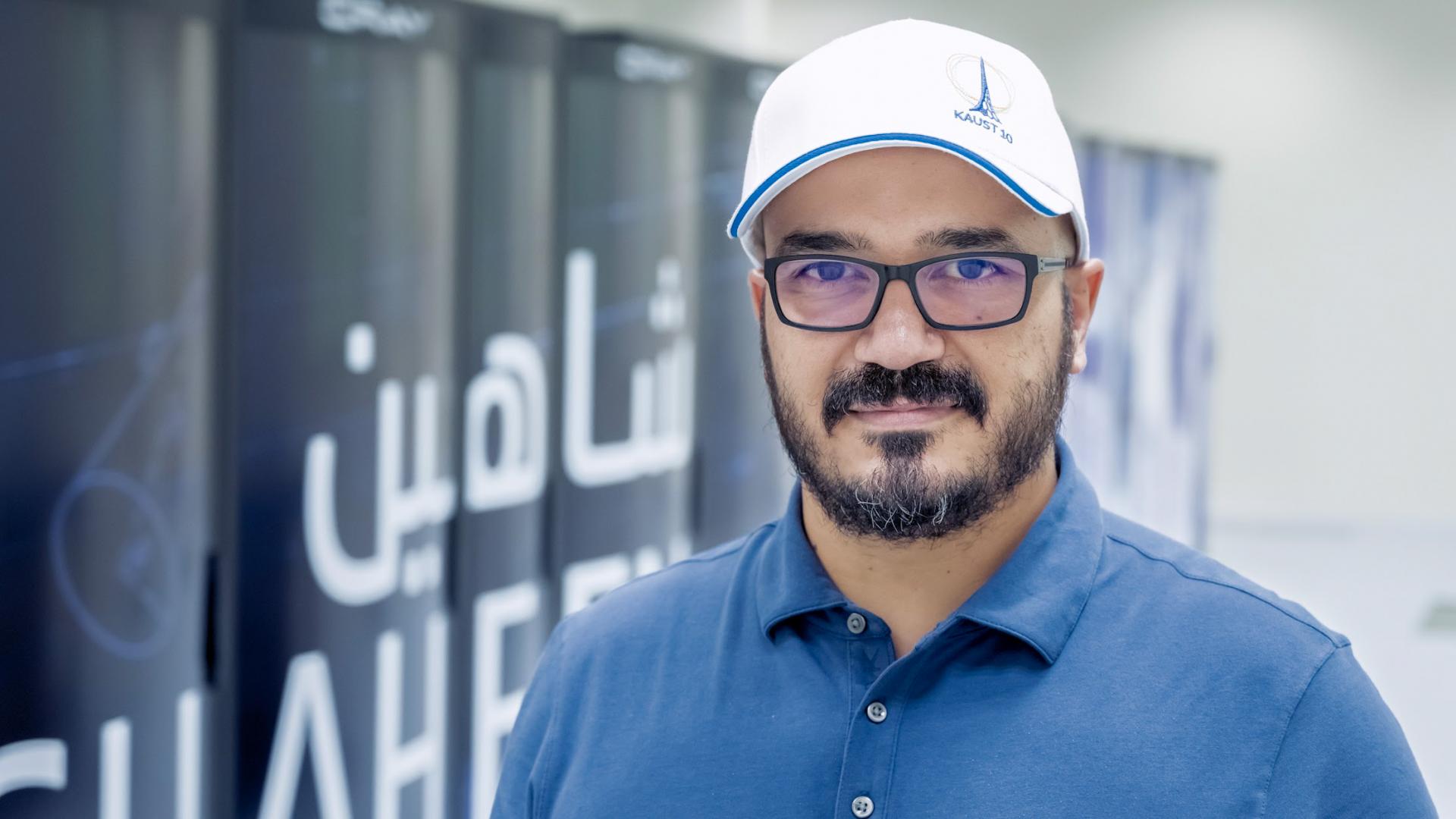
|
|
| 10:00-12:00 |
Workflows and programming environments
|
DiRAC and AI
|
| 12:00-13:00 |
 Lunch
Lunch
|
|
| 13:00-15:00 |
Benchmarking, training and community
|
No parallel sessions. |
| 15:00-16:00 |
Luigi Del Debbio EuroHPC Joint Undertaking
A brief overview of the machines available through EuroHPC JU. The talk is enriched with remarks on different access routes (AI, test accounts, regular access, extreme scale calls) and puts special emphasis on routes that are (still) open to UK researchers. The audience will benefit from some insider remarks on how the resource allocation panel works, what good proposals look like, and what distinguishes good from not so good proposals.
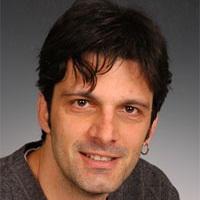
|
|
| 16:00-16:30 |
 Coffee
Coffee | |
| 16:30-18:30 |
Talent & Careers
The pipeline of talent in HPC and large-scale AI computing is fragile and leaking. In this session, we present initiatives that aim to increase the number of colleagues moving into our area and to improve professional development.
We will invite industry partners to serve on the panel besides our speakers.
The new panel members will start with a brief presentation what they see lacking in terms of skills among applicants, challenging the initial presentations. After that, the audience is invited to submit questions.
|
SYCL, OneAPI & Performance-portability
|
| 18:30-21:00 |
 Poster Session
Poster Session
We present posters from Durham’s SIAM Student Chapter. Participants from the UK’s ExCALIBUR projects are invited to bring along their project posters, too. There will be a best poster prize.
|
|
| Thursday | ||
| 9:00-10:00 |
Thomas Hauser (NCAR) and Michele Weiland (EPCC)
Working towards net zero computational modelling and simulation in the atmospheric sciences (NCAR) (EPCC) 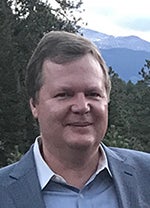
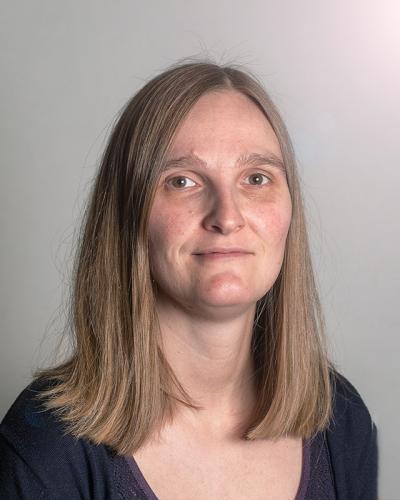
| |
| 10:00-12:00 |
Correctness & Debugging, GPUs, Performance Analysis & Tuning – Workshop Wrap-up
Durham’s Computer Science runs, in close collaboration with Durham’s Advanced Research Computing and DiRAC, a series of professional development workshops for HPC developers. These activities comprise a debugging and correctness workshop series, a sequence of GPU events, and the Performance Analysis Workshop Series where various UK HPC groups study one piece of code over multiple weeks using multiple tools. The Thursday morning session gives the groups the opportunity to report on their experiences both with their codes, the training, and the educational programme overall. They also have the opportunity to highlight missing training ingredients and the impact of professional development on their own careers.
| |
| 12:00-13:00 |

 Lunch
Lunch | |
| 13:00-15:00 |
 Community Building and Fostering Diversity (Women in HPC)
Community Building and Fostering Diversity (Women in HPC)
|
Algorithms and applications
|
| 15:00-18:00 |
Guided tour through Durham Castle
We have organised two guided tours (25 persons per tour) through Durham’s historic castle. The tour slots will be filled upon registration first-come first-served. Meeting point is 15:40 in front of the Castle entrance.
| |
| 18:00-21:00 |
 Conference Dinner
Conference Dinner
The conference dinner will be hosted at Durham’s Business School. Please allow some time to get from the conference venue or castle/cathedral up the hill to this building. Food will be served at 19:00. Troughout the dinner, we’ll have a dinner speach by
Hans-Joachim Bungartz (TUM): My Own Private GPU Cluster: Greedy AI Folks and a Déjà-vu (short bio) 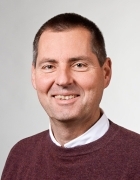
| |
| Friday | ||
| 9:00-10:00 |
Alison Kennedy You Ain’t Green Nothing Yet
This talk orbits around some key questions raised by the Pathway to Exascale project: nergy usage – if we are looking at energy to solution, does that mean we should prioritise some science areas over others? Is the Green 500 list something the UKL should take seriously or a gamified gimmick? What’s the role of the RSE community in minimising energy usage or should we be expecting vendors to do more? How do we balance cost in our procurements or outsourcing while ensuring that costs are not kept artificially low by forced labour or unethical employment practices in the supply chain? Should we look to lower UK emissions by shipping our computers and data to other countries and if so what issues does that cause?
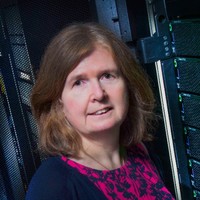
|
|
| 10:00-12:00 |
Net Zero
|
No parallel sessions. |
| 11:35-12:00 |
 Coffee
Coffee
| |
| 12:00-13:00 |
Johannes Doerfert LLVM for HPC and ML; HPC and ML for LLVM
In this two-part talk, we will look at LLVM, the foundational infrastructure that powers a significant portion of modern High-Performance Computing (HPC) and Machine Learning (ML) compilers. The Exascale Computing Project (ECP) has recognized LLVM’s pivotal role and aimed to enhance it to influence vendor compilers and provide a pathway for risk mitigation. Reflecting on ECP’s impact on LLVM, we’ll explore the lessons learned and the trajectory ahead.
The first part of the talk will spotlight LLVM’s capabilities to support HPC and ML. For both tasks, we must accommodate the expanding array of input languages and the continuously diversifying landscape of computing architectures. In this talk, we look at user facing capabilities via LLVM/Flang and LLVM/libcxx, and cross-language, cross-architecture solutions, like LLVM/Offload and Enzyme.
In the second part, we’ll shift focus to the symbiotic relationship between ML, HPC, and LLVM. By harnessing ML techniques, we can optimize various aspects of LLVM, elevating its efficiency and efficacy in compiling code for diverse computing environments. Despite sparse uses of ML in LLVM, early endeavors show promising results. We will introduce the existing infrastructure and ongoing efforts that provide researchers with the tools and data necessary for new novel exploration.
Join us as we explore the dynamic interplay between LLVM, HPC, and ML, illuminating the path forward for enhanced compiler infrastructures in the era of exascale computing and beyond.
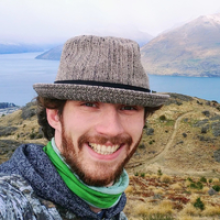
|
|
Call for presentations and registration
The call for presentations is now closed. Thanks for submitting more than 30 talks. We will struggle to accommodate all of them in the main programme, but we will manage, as all of them sound promising! However, we will not be able to accept any late submissions anymore.
Registration is now closed.
Travel in and around Durham and accommodation
There is no financial or logistics support for accommodation and travel, but we can point to a few hotels nearby that guests of the department use frequently. Participants will need to make all booking
- Hotel Indigo (15-20 min walk)
- Premier Inn (20-25 min walk)
- Marriott (15-20 min walk)
- Travelodge (25-30 min walk)
The University has their own Events team. They also provide B&B accommodation. However, as we approach the new term, it is not likely that they have “spare” rooms.
The University’s official Visit Us page provides some general guidance how to find us. The Department of Computer Science is on Mount Joy next to the Botanic Garden. Here are some further remarks how to get there:
- If you are arriving at Newcastle International, take the tram (there’s only one) to Newcastle Central (less than 40 minute) and then take a train to the South. Durham is 15 minutes away from Newcastle Central.
- Alternatively, you can take a taxi from the airport (should be around 60 GBP for a drive of around 40 minutes in total). You can book a taxi directly within the airport at the counter next to the International Arrivals.
- From Durham train station, it is a 30-40 minute walk, which is quite beautiful.
- Taxis should be available from the station and should be around 10-15 GBP.
- Right in front of the station, there’s a bus stop with two lines:
- Bus 42 to Mount Oswald. It runs every 30 minutes. Get off at “South Road Colleges” and walk up the hill from there (5 minutes).
- Bus 41 to University Science Park. Hop off at the final stop.
Arriving by plane and travel to ISC
Many of our guests and friends will travel to ISC afterwards. Newcastle is the nearest airport and there are regular connections from Heathrow (BA), Frankfurt (Lufthansa) and Amsterdam (KLM). For some connections, it might be more convenient to take the train from Manchester (served by Turkish, e.g.). It is a 3hrs train ride directly into Durham, but the Manchester Airport train station is at least directly inside the terminal.
We will be happy to organise bus drop off on Friday afternoon at Newcastle International if required. There are multiple convenient travel options:
- There are regular flights from Newcastle (NCL) to Amsterdam (KLM), London (BA) or Frankfurt (Lufthansa) from which there are flights into Hamburg. You might however have to stay overnight to continue to Hamburg very early in the (Sunday/Monday) morning.
- Ryanair/EasyJet offer non-stop flights from Edinburgh which is around 3hrs by train (incl local change) north of Durham.
- LNER has a fast, frequent connection (3hrs) to London Kings Cross, next to the EuroStar.
Programme committee
- Rebecca Appleby, ARC, Durham University (Logistics)
- Eleanor Broadway, EPCC, Edinburgh (Early career, WHPC)
- Nick Brown, EPCC, Edinburgh (Co-Chair, ExCALIBUR)
- Clare Jenner, DiRAC, UCL (Skills, national collaborations)
- Alan Real, ARC, Durham University (International collaboration)
- Tobias Weinzierl, CS, Durham University (Chair, EDI & digital experience)
- Alastair Basden, DiRAC/ICC, Durham University (Industry)
